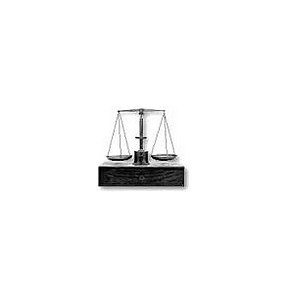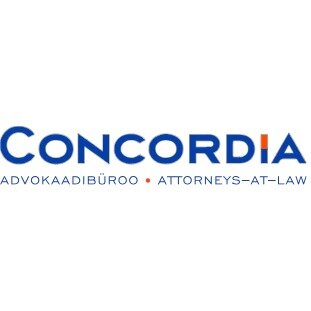Best Consumer Rights Lawyers in Tallinn
Share your needs with us, get contacted by law firms.
Free. Takes 2 min.
List of the best lawyers in Tallinn, Estonia
About Consumer Rights Law in Tallinn, Estonia
Consumer rights law in Tallinn, and Estonia as a whole, is designed to protect individuals from unfair trade practices and ensure their rights when purchasing goods and services. The primary goal is to provide a fair marketplace where consumers can make informed decisions, businesses can compete fairly, and corporate responsibility is upheld. The European Union's directives heavily influence Estonia’s consumer protection framework, given its status as an EU member state. The Consumer Protection and Technical Regulatory Authority (CPTRA) is the main body responsible for overseeing and enforcing these rights.
Why You May Need a Lawyer
There are several scenarios where seeking legal advice in consumer rights could be beneficial. These include disputes over defective goods, misleading advertising, unfair terms in contracts, problems with refunds or returns, and privacy violations. Additionally, if you encounter issues with service providers or face conflicts involving digital products or e-commerce, a lawyer specializing in consumer rights can provide guidance and help resolve the situation effectively.
Local Laws Overview
Estonia's consumer protection laws are comprehensive and align with EU regulations. Key aspects of these laws include the right to clear and complete information before a purchase, protection against unfair contractual terms, statutory guarantees for goods and services, and the right to withdraw from certain contracts within a specified period (cooling-off period). Moreover, digital consumer rights have also gained prominence, offering protections in digital content and service purchases.
Frequently Asked Questions
What are my basic rights as a consumer in Estonia?
You have the right to receive accurate information, protection against unfair practices, and the right to return goods under certain conditions, among others.
What should I do if a product is faulty?
Initially, contact the seller and request a repair, replacement, or refund. If the issue is not resolved, you may need to submit a complaint to the CPTRA or consider legal assistance.
How long does the statutory warranty last in Estonia?
The statutory warranty period for goods is generally two years from the date of purchase.
Can I return a product if I change my mind?
Yes, particularly for online purchases, you often have a 14-day period to return the product without providing a reason, under the right of withdrawal.
What constitutes unfair terms in a contract?
Unfair terms heavily favor the seller or service provider over the consumer in unreasonable or disproportionate ways, often without clear, mutual consent.
How are digital rights protected in Estonia?
Consumers are entitled to transparency about digital content and have the same rights for post-purchase issues as with physical goods, including the right to a refund or remedy.
Where can I file a consumer complaint?
You can file a complaint with the Consumer Protection and Technical Regulatory Authority online or in writing.
How does the cooling-off period work?
It allows consumers to cancel a contract within 14 days without giving a reason. This applies mainly to online and off-premises purchases.
What recourse is available for misleading advertisements?
If you encounter misleading advertisements, report them to the CPTRA. They can take action against the advertiser for false claims.
What steps can I take if I face issues with a service provider?
Attempt to resolve directly with the provider first. If unresolved, consider mediation, filing a formal complaint, or legal action.
Additional Resources
There are several resources available to consumers in Tallinn. The Consumer Protection and Technical Regulatory Authority serves as the primary enforcement body. The Estonian Consumer Protection Association also provides guidance and support. Online platforms and forums can be valuable, and you can access EU-level consumer rights information via the European Consumer Centres Network.
Next Steps
If you require legal assistance, begin by gathering all pertinent documentation related to your case. Contact a lawyer specializing in consumer law; most have experience handling disputes efficiently. For straightforward cases, the CPTRA’s online complaint service can facilitate resolutions. Additionally, utilizing mediation services or consultations offered by consumer rights groups can be a cost-effective method before resorting to litigation.
Lawzana helps you find the best lawyers and law firms in Tallinn through a curated and pre-screened list of qualified legal professionals. Our platform offers rankings and detailed profiles of attorneys and law firms, allowing you to compare based on practice areas, including Consumer Rights, experience, and client feedback.
Each profile includes a description of the firm's areas of practice, client reviews, team members and partners, year of establishment, spoken languages, office locations, contact information, social media presence, and any published articles or resources. Most firms on our platform speak English and are experienced in both local and international legal matters.
Get a quote from top-rated law firms in Tallinn, Estonia — quickly, securely, and without unnecessary hassle.
Disclaimer:
The information provided on this page is for general informational purposes only and does not constitute legal advice. While we strive to ensure the accuracy and relevance of the content, legal information may change over time, and interpretations of the law can vary. You should always consult with a qualified legal professional for advice specific to your situation.
We disclaim all liability for actions taken or not taken based on the content of this page. If you believe any information is incorrect or outdated, please contact us, and we will review and update it where appropriate.
Browse consumer rights law firms by service in Tallinn, Estonia
Tallinn, Estonia Attorneys in related practice areas.













